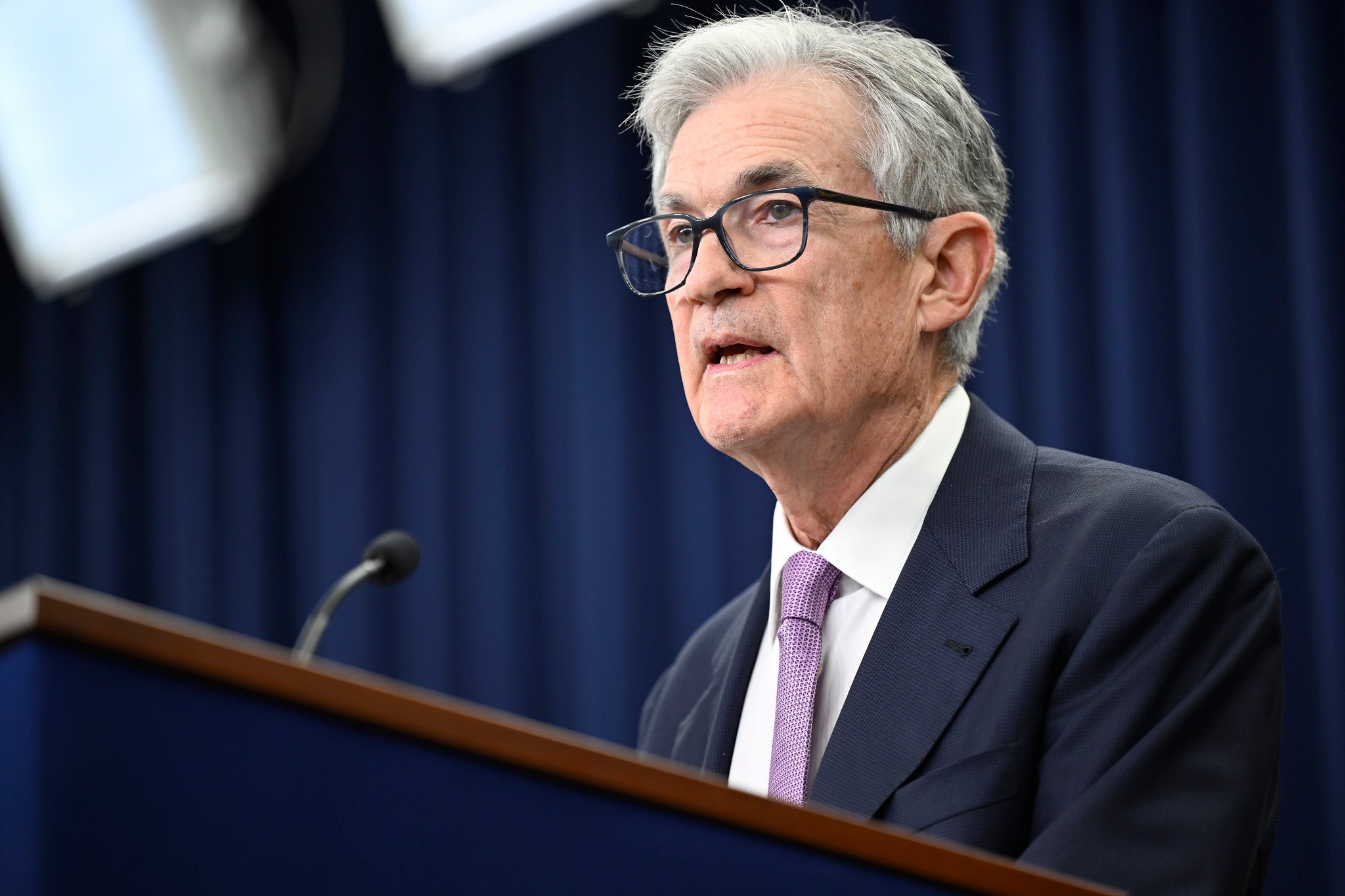As Foolish macroeconomic guru Morgan Housel noted last week, everything is great for all intents and purposes, but no one is happy.
This very well could go down as one of the most hated rallies of all time despite the fact that the S&P 500 (^GSPC 0.84%) has risen nearly 170% from its March 2009 lows and is up about 25% year to date. No matter how you look at it, it's been a truly remarkable year for the iconic S&P 500 and those investors who have been holding their stocks throughout the year have probably been justly rewarded.

As we saw with yesterday's economic data, this rally may still have legs. The second-estimate for GDP growth for the quarter came in at 3.6%, considerably stronger than anyone had forecast, while initial weekly jobless claims fell below a seasonally adjusted 300,000, which is near a six-year low and would signal that the unemployment rate could continue to move lower.
As I also noted yesterday, though, not everyone is on board with this rally. Skeptics are piling up in droves and focusing on the imminent end to the Federal Reserve's monetary easing program as well as a lack of strong organic revenue growth in companies as all the more reason to be suspect of our latest highs.
Despite this ongoing tug-of-war between optimists and pessimists, there exists a select group of companies within the S&P 500 that few investors would dare bet against. I like to refer to these companies as the S&P 500's five most loved stocks. As we've done in previous months, I'm suggesting we take a closer look at these five S&P 500 components to determine what characteristics, if any, they share because stocks that carry few short-sold shares could be more inclined to head higher.
Here are the S&P 500's five most loved stocks:
|
Company |
Short Interest as a % of Outstanding Shares |
|---|---|
|
Berkshire Hathaway (NYSE: BRK-B) |
0.00% |
|
TE Connectivity (TEL +0.00%) |
0.42% |
|
Zoetis (ZTS 2.07%) |
0.56% |
|
Tyco International |
0.62% |
|
Loews (L +1.50%) |
0.64% |
Source: S&P Capital IQ.
Berkshire Hathaway
Why are short sellers avoiding Berkshire Hathaway?
- This really should become a "same story, different month" column because Berkshire Hathaway is likely to lead the list of least short-sold companies in the S&P 500 every month because of its incredible portfolio diversity (Berkshire will be comprised of 58 different companies in numerous sectors once it completes its NV Energy transaction) and because perennial value stalwart Warren Buffett is at the helm. Betting against Buffett has rarely worked over the long run, so investors generally avoid betting against Berkshire's stock.
Do investors have a reason to worry?
- Nothing barring a deep recession should concern Berkshire shareholders, and I'd even say then that Berkshire's business diversity should allow it to pull through better than many of its peers. Berkshire's book value growth has beaten that of the S&P 500 close to 80% of the time over the past five decades which is certainly reason enough for me to suggest you not bet against this rock of stability.
TE Connectivity
Why are short sellers avoiding TE Connectivity?
- TE Connectivity, once a part of Tyco when it was a conglomerate, has avoided the pangs of high short interest by taking a page out of Berkshire's book and simply delivering solid sales and EPS growth, boosting its dividend, and operating in a number of different industries. Earlier this week, TE Connectivity announced a 16% increase to its annual dividend to $1.16 from $1, which follows its fourth-quarter results in late October, where it grew total sales by 2%, adjusted earnings by 22%, and generated $412 million in free cash flow. Consistent growth and steady dividends are often rewarded with low short interest as we're seeing here.
Do investors have a reason to worry?
- I'm certainly not as gung-ho about TE Connectivity as I am about Berkshire when it comes to suggesting short sellers keep their distance, but I don't see any particular reason for investors to worry about significant downside here. TE Connectivity has topped Wall Street's estimates in each of the past four quarters, offers a power connect product line that's in high demand across the energy and automotive sectors, and is now yielding north of 2% when inclusive of its new payout. I believe that's enough reason for shareholders to sleep well at night.

Source: Canoozle Pets, Flickr.
Zoetis
Why are short sellers avoiding Zoetis?
- Spun off from Pfizer earlier this year, Zoetis is the largest publicly traded animal health, medicines, and vaccines company in the U.S. Although its trailing P/E of 40 might make some people skeptical, one only needs to look at pet ownership trends to understand why short sellers are keeping their distance. According to the American Pet Products Association, pet product sales have grown from a $17 billion business in 1994 to an estimated $55.5 billion in 2013 as pet ownership has increased to 68% of homes from 56% in 1988. With people willing to pay out the nose to make sure their pets stay healthy, short sellers have kept away from betting against Zoetis.
Do investors have a reason to worry?
- Based on the fact that consumers will do just about anything for their pets, which have certainly become part of the American family, and that Zoetis' quarterly revenue moved higher by 8% to $1.1 billion in its most recent quarter, I would contend that short sellers are smart to keep their distance from Zoetis. Furthermore, with more consumers choosing not to get health insurance on their pet, Zoetis is collecting beefier margins for its medicines right out the pockets of consumers.
Tyco International
Why are short sellers avoiding Tyco International?
- Not to sound like a broken record again, but Tyco International, which provides security, fire suppression, and life safety products, has kept out of the spotlight of short sellers by delivering slow, but steady, revenue and EPS growth while also providing a reasonably solid 1.7% yield. Let's recall that short sellers are often after the quick buck, and Tyco tends to not be very volatile, leaving little reason for short sellers to even consider betting against this giant.
Do investors have a reason to worry?
- Given that Tyco offers very few downside catalysts, I don't feel shareholders have any reasons to be particularly concerned. I would mention, though, that with its organic growth rate chugging along at just 4% to 5%, Tyco's upside may be limited as well with a trailing-12-month P/E of 33, barring a smart earnings-accretive acquisition or substantial dividend hike or share buyback.
Loews
Why are short sellers avoiding Loews?
- The best reason I can think of to avoid Loews (not to be confused with the do-it-yourself home-improvement store) is that it's a cash flow machine. Loews operates in the commercial property and casualty business, which means that if its expenses or policy payouts rise, it can simply boost its premiums to cover the jump in costs. Insurers really have it made as the lack of transparency on pricing works in their favor, allowing them to reap long-term rewards with the occasional hiccup. To top things off, Loews is also trading slightly below its book value, giving short-sellers even less reason to bet against it.
Do investors have a reason to worry?
- I'm not trying to make this a unanimous five-for-five, but I don't see any tangible reasons for existing shareholders to worry about Loews. Obviously, periods of higher insurance payouts do happen now and then, but over the long run, insurers are positioned to maintain strong pricing power and deliver steady cash flow. As long as Loews management team remains prudent with its investments, there's really no reason shareholders shouldn't sleep well at night.









